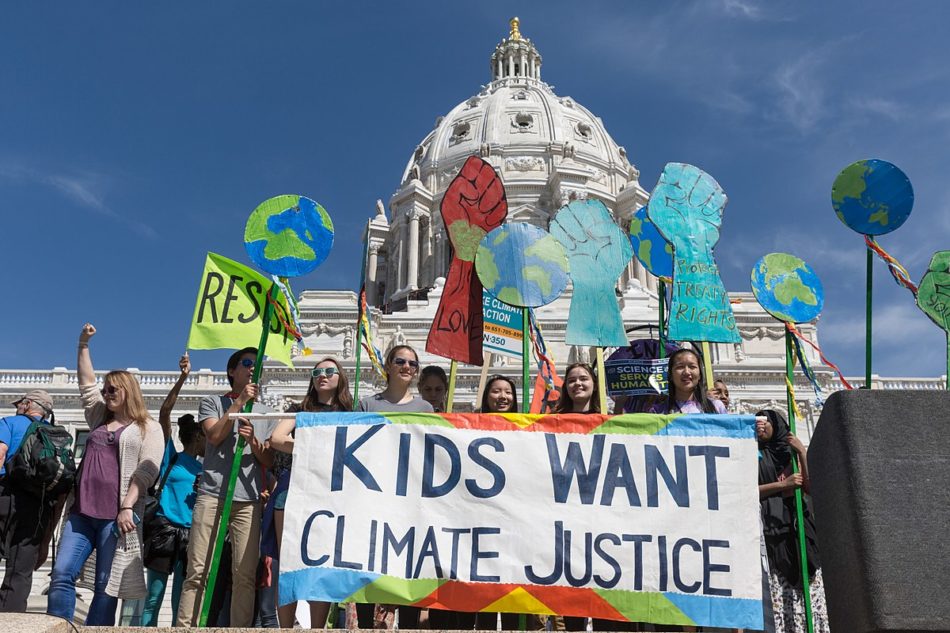As Washington’s legislative session kicks into high gear, young people in the climate movement are planning to engage state government more seriously than ever before. January 24 will be Youth Climate Lobby Day when a range of youth-led groups will demand that the state declare a climate emergency and advance several pieces of clean energy legislation. Their political timing—and their somewhat confrontational style—seem appropriate, given the increasing urgency of climate change and a recent disappointment in the courts.
Last week, a panel of three judges on the Ninth Circuit Court of Appeals issued a decision in Juliana v. United States, the ambitious lawsuit brought by 21 young people arguing that the federal government must take immediate and decisive action to combat our ongoing climate crisis.
A two-judge majority dismissed the case, ruling that the plaintiffs lacked “standing,” the three-part constitutional requirement to show that they have been harmed (injury) by the defendants (causation), in ways that the courts can remedy (redressability). The government has repeatedly and vigorously argued that the plaintiffs fall short in satisfying each element of standing.
The court found that although the injury and causation prongs of the test were met, the plaintiffs could not demonstrate redressability. The judges were primarily concerned with the sweeping nature of any order that would be necessary to meet the plaintiffs’ demand that the government undertake a plan to “phase out fossil fuel emissions” and draw down excess carbon dioxide “so as to stabilize the climate system.”
Were a court to grant the plaintiffs’ request, it would be in the position of overseeing and enforcing a plan that would include a dizzying range of policy decisions that would implicate issues such as the country’s economic performance and its relationships abroad. The Ninth Circuit’s hesitancy is grounded in the notion that the judiciary has a particular role in our constitutional system and in some instances should defer to the two other more politically responsive branches of government.
The argument that climate change represents a political problem that is outside the reach of the courts has arisen in a number of climate lawsuits, including in California, Washington, and New York. It is a bitter irony that the enormity of the climate threat and the scope of the challenge ahead have led judges to find that they are powerless to intervene.
The frustration spurred one judge on the Juliana panel to write a furious dissent that eloquently, if despairingly, captures our current moment:
Plaintiffs’ claims are based on science, specifically, an impending point of no return. If plaintiffs’ fears, backed by the government’s own studies, prove true, history will not judge us kindly. When the seas envelop our coastal cities, fires and droughts haunt our interiors, and storms ravage everything between, those remaining will ask: Why did so many do so little?
That, however, does not mean that the climate news these days is universally bleak. The Ninth Circuit’s majority opinion concludes that “the plaintiffs’ case must be made to the political branches or to the electorate at large.” That task has increasingly been taken up by young people over the last year, with the Extinction Rebellion, Climate Strikes (inspired by Greta Thunberg), and the Sunrise Movement all advocating for major policy change. As young people confront an increasingly risky future, we can expect that 2020 will bring even more serious and sustained pressure from the climate youth movement.
Michael Mayer practiced environmental law in the Northwest for close to a decade and now teaches climate change law at Seattle University School of Law.

